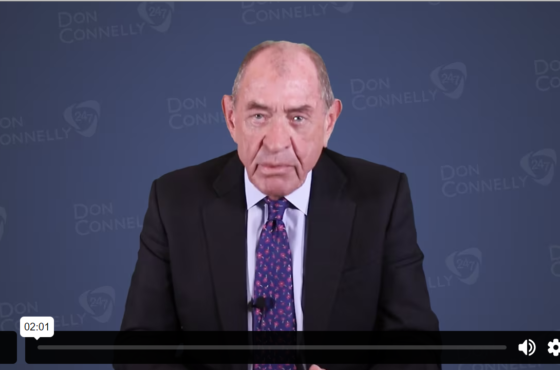Sales Jiujitsu: How to Introduce Yourself as a Financial Advisor
 Occasionally I get asked about the best way to introduce yourself as a financial advisor.
Occasionally I get asked about the best way to introduce yourself as a financial advisor.
That’s an important skill. But in some ways, focusing on introducing yourself to other people is looking at the problem from the wrong direction. There’s always the risk that going to a business mode when the prospect is not yet receptive to it will cause them to go into “shields-up” mode.
Instead, turn that process inside out: Consider finding ways to get prospects to introduce themselves to you.
The difference is fundamental: Instead of you feeding information to them, they’re feeding information to you! Information that can help you build rapport and trust, establish that you can potentially help them, and schedule a more formal appointment so you can talk business, take a fact finder, and land your new client.
In jujitsu, the idea is to capture your opponent’s momentum and use it to your advantage. Your opponent attempts to deliver a kick. But that kick also puts his foot into easy grasping range. It gives you something to work with. You dodge the kick, gain control of his extended leg, and put him on the mat!
Easy-peasy! it’s much easier and more painless than trying to duke it out directly.
So how do you get the other party to give you something to work with?
You take the initiative and get them to talk about themselves!
Ask them open-ended questions:
- “What kind of work do you do?”
- “How did you get into it?”
- “What do you specialize in?”
- “What attracted you to that field?”
- “What’s the biggest headache you face?”
Just like a jujitsu artist who wants to get his opponent to overextend, you want to draw out your new contact as much as possible. The more they talk, the better for you.
After a certain point, your new acquaintance will probably ask about what you do. And now you’re in a much better position.
Here’s a basic formula you can run with.
“I work with ________ to help them _________.”
The blanks depend on what you find out about your new contact: The first blank is [people who are like your contact]. The second is [hot button].
- “I work with public employees to help them maximize their pension and other retirement benefits.”
- “I work with physicians to help them with asset protection and retirement planning.”
- “I work with business owners to help them to maximize the long-term value of their business for themselves and their families.”
- “I work with business owners to help them secure a better retirement.”
- “I work with families to help them plan for their children’s education and build long-term wealth.”
See, if you try to introduce yourself first, you’re flying blind. You don’t have any intelligence on what your prospect might want or need. It’s very difficult to differentiate yourself from the pack that way. It’s very difficult to establish value for the future client.
By drawing out your prospect first, you’re getting the intelligence you need. You’re getting clues about their profession, their overall income level or potential, their values, etc.
Oh, and don’t be afraid to say “I’m a financial advisor!” There’s nothing wrong with it! Be out and proud! Cock of the walk, baby!
Same thing for the life insurance agents. Own it! When someone needs life insurance, you think they’re gonna call someone who calls himself a “wealth coach?” No. They’re going to call the life insurance lady!
But it’s no longer enough to say “I’m a financial advisor” or I’m “a life insurance agent,” by itself. Mastering a niche is very valuable. So you need to have the modifier, “who specializes in ________.”
That modifier is crucial. That modifier is what differentiates you from the heard. That modifier is what clicks on your prospect’s mental radio receiver and dials it in to the most lucrative station in the world, WII FM: “What’s In It For Me?”
If you’ve been reading my blog or watching the podcasts in my learning center for a while, you know I’m a huge proponent of soft skills. Here are two critical soft skills for any sales professional to master:
Elicitation, and the art of active listening.
Elicitation is the art of getting others to reveal information. Law enforcement and military intelligence people do it all the time. The difference is that in the law enforcement context, they will occasionally make false or misleading statements to get their subject talking.
We’re not in that business. Financial advisors should never make false or misleading statements. But there are plenty of ways to encourage people to talk about themselves without ever having to practice any kind of deception. All you have to do is ask open-ended questions, and then listen to what they say.
People like to be helpful. They like to be perceived as smart, or as subject matter experts. Use it to your advantage.
Then when you are ready to introduce yourself and what you do, you are in great shape.
Here’s another variation on the same theme:
“Wow! I have a client who was in the same predicament as you! In his case, we were able to solve the problem.”
Sometimes you don’t have time to have an extended conversation. Time is of the essence. That’s where your elevator speech comes in. You should have it polished and ready to go.
Here’s what to keep in mind:
- It must sound like the way people talk, not the way people write.
- It needs to be relatable. “You know how people have Problem X? I help people fix it with Solution Y.
Example 1. “You know how a lot of people worry about running out of money in retirement? I help people create guaranteed streams of income and protect themselves from stock market declines.”
Example 2. “You know how a lot of physicians are worried about lawsuits? I help them protect their assets, both inside and outside of retirement.”
Example 3. “You know how some people just never get off the ground with retirement savings? I help light a firecracker under them, to help them get on track for retirement, college planning and any other financial issues.”
Follow it up quickly with “How should I contact you?” Then, “Great! I’ll give you a call tonight!”
Remember: Be a card collector, not a card giver!
At the introductory meeting, your goal is to have a way to contact the prospect, and their permission for you to call.
Sometimes all you’ll get is an email. “Great! I’ll drop you a note!”
If you have some information about them and their situation, you can include a blog post or an article that adds value for them somehow. Anything that shows them that you were listening, you care about their situation, you understand their problems or goals, and that you may be able to help them is good. It could start an email conversation.
Any response you get is a leg being extended into your reach. Grab it, take control, and get an appointment done!
Now get out there and meet people!
Watch this 2-minute video to learn how our 8-step training program will help you create your unique value proposition and develop a plan for using it day in and day out for the rest of your career to attract new clients.
See program details and enroll today!
Available as a self-paced program or in combination with an individual coaching session with Don Connelly, this program will help you reboot your practice and take it to new heights. Select your format and enroll now!




Awesome post and very informative! I like it.
Thanks for reading and commenting, Ai Sar – we’re thrilled you found the post useful! And please let us know if you have any questions that you don’t find an answer to on the blog – those usually give us great ideas for new posts 🙂
~Diana